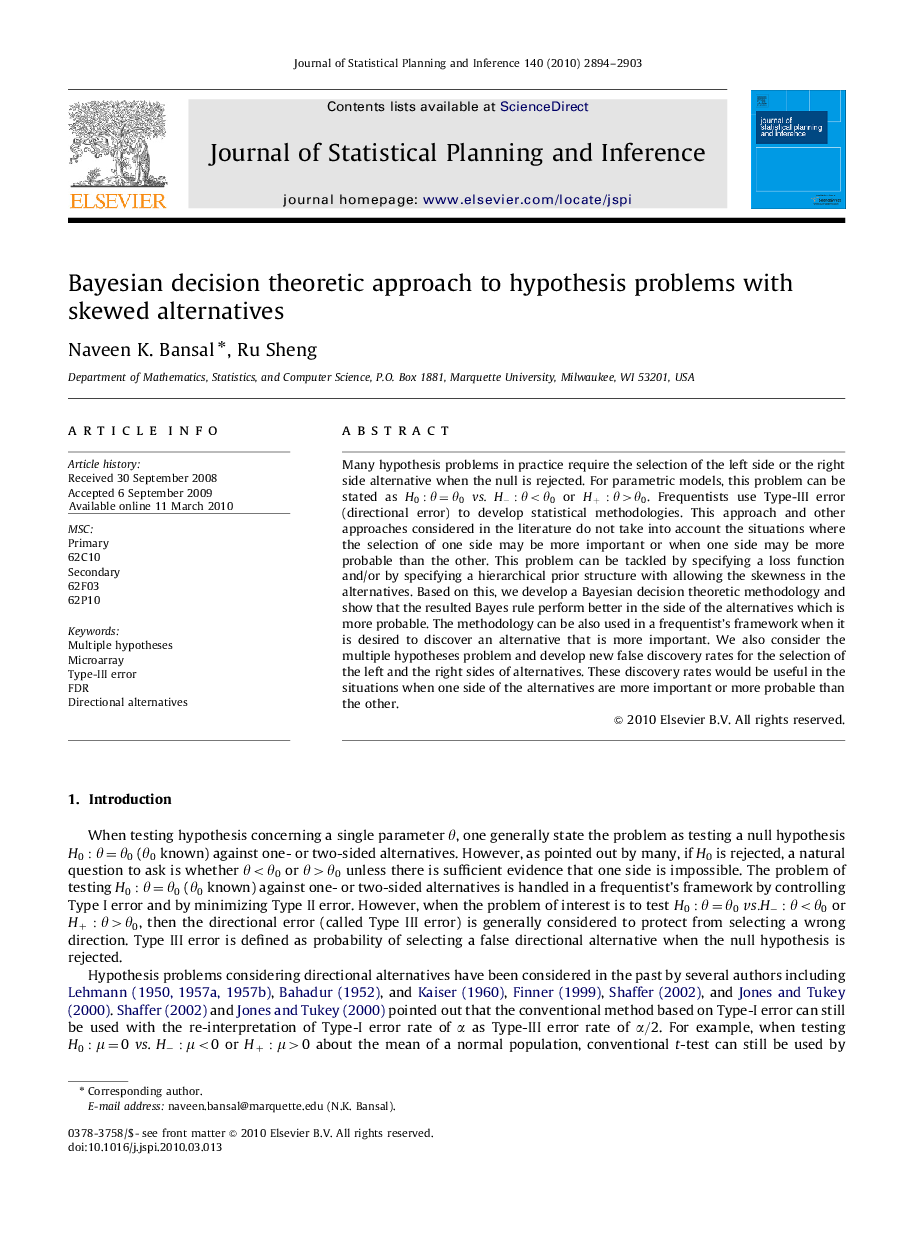| کد مقاله | کد نشریه | سال انتشار | مقاله انگلیسی | نسخه تمام متن |
|---|---|---|---|---|
| 1147815 | 957798 | 2010 | 10 صفحه PDF | دانلود رایگان |
عنوان انگلیسی مقاله ISI
Bayesian decision theoretic approach to hypothesis problems with skewed alternatives
دانلود مقاله + سفارش ترجمه
دانلود مقاله ISI انگلیسی
رایگان برای ایرانیان
کلمات کلیدی
موضوعات مرتبط
مهندسی و علوم پایه
ریاضیات
ریاضیات کاربردی
پیش نمایش صفحه اول مقاله

چکیده انگلیسی
Many hypothesis problems in practice require the selection of the left side or the right side alternative when the null is rejected. For parametric models, this problem can be stated as H0:θ=θ0 vs. Hâ:θ<θ0 or H+:θ>θ0. Frequentists use Type-III error (directional error) to develop statistical methodologies. This approach and other approaches considered in the literature do not take into account the situations where the selection of one side may be more important or when one side may be more probable than the other. This problem can be tackled by specifying a loss function and/or by specifying a hierarchical prior structure with allowing the skewness in the alternatives. Based on this, we develop a Bayesian decision theoretic methodology and show that the resulted Bayes rule perform better in the side of the alternatives which is more probable. The methodology can be also used in a frequentist's framework when it is desired to discover an alternative that is more important. We also consider the multiple hypotheses problem and develop new false discovery rates for the selection of the left and the right sides of alternatives. These discovery rates would be useful in the situations when one side of the alternatives are more important or more probable than the other.
ناشر
Database: Elsevier - ScienceDirect (ساینس دایرکت)
Journal: Journal of Statistical Planning and Inference - Volume 140, Issue 10, October 2010, Pages 2894-2903
Journal: Journal of Statistical Planning and Inference - Volume 140, Issue 10, October 2010, Pages 2894-2903
نویسندگان
Naveen K. Bansal, Ru Sheng,